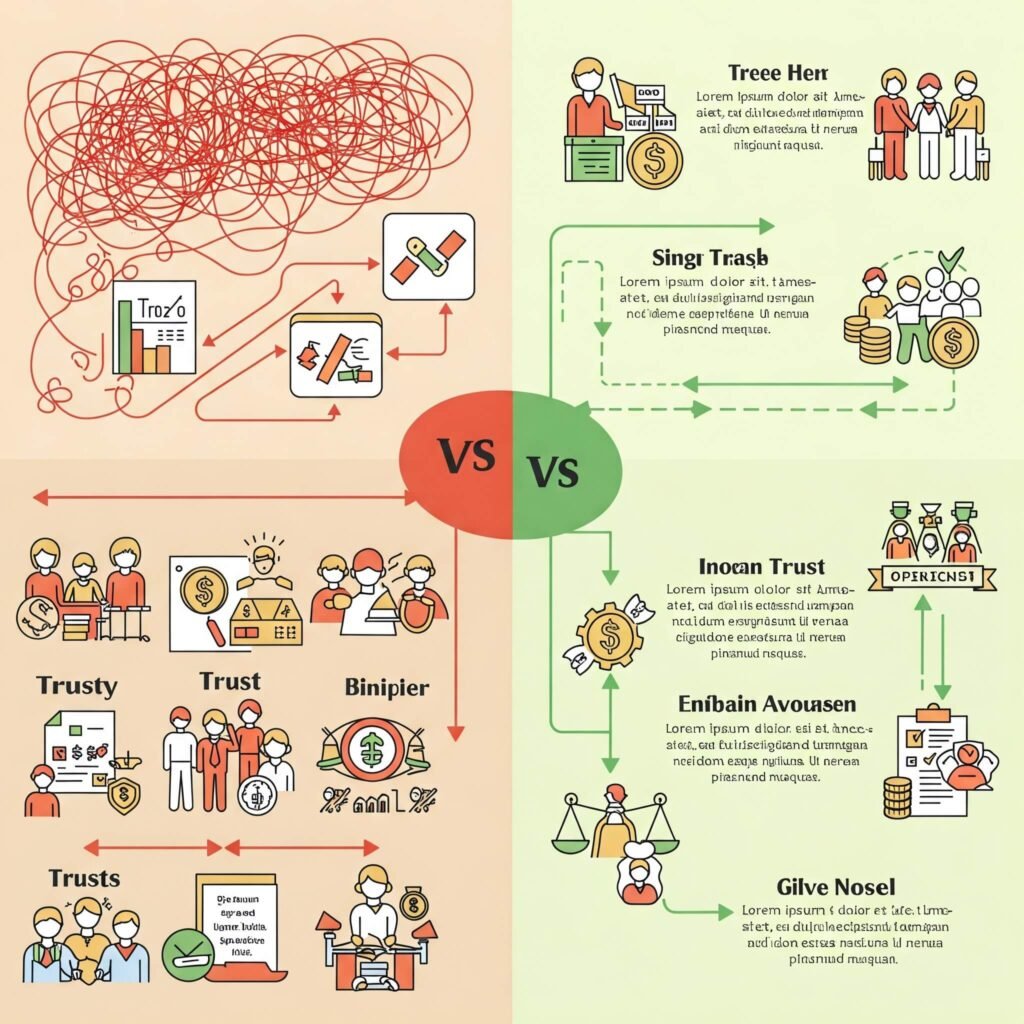Dealing with the legal process of probate can be a costly, time-consuming ordeal for your loved ones. Fortunately, with smart estate planning, you can avoid probate and ensure your estate remains intact for your heirs. Probate is the court-supervised process of validating a will and distributing assets, but it often comes with delays, high legal fees, and public exposure of your estate details. This guide shares seven actionable estate planning tips to help you bypass probate, protect your legacy, and provide peace of mind.

Why You Should Avoid Probate
Probate can erode your estate’s value and delay asset distribution. According to the American Bar Association, probate costs can range from 3-7% of an estate’s value, and the process can take 6-18 months or longer. By taking steps to avoid probate, you streamline the transfer of assets, maintain privacy, and reduce financial burdens on your heirs.
7 Essential Tips to Avoid Probate
1. Establish a Revocable Living Trust
A revocable living trust is one of the most effective ways to avoid probate. By transferring assets into a trust, you retain control during your lifetime, and upon your passing, assets pass directly to beneficiaries without court involvement. For example, Jane, a retired teacher, created a living trust for her home and savings, ensuring her children inherited everything seamlessly.

2. Use Beneficiary Designations
Accounts like retirement plans, life insurance, and bank accounts allow you to name beneficiaries. These assets bypass probate and transfer directly to the designated individuals. Double-check your designations regularly, as outdated beneficiaries (e.g., an ex-spouse) can cause disputes.
- Pro Tip: Review beneficiary designations after major life events like marriage or divorce.
3. Hold Property in Joint Tenancy
Owning property as “joint tenants with right of survivorship” ensures that when one owner passes, the other automatically inherits the asset, avoiding probate. This is common for married couples, like John and Sarah, who held their home in joint tenancy to simplify inheritance.
4. Gift Assets During Your Lifetime
Gifting assets while you’re alive reduces your estate’s size, potentially avoiding probate for those assets. In 2025, you can gift up to $18,000 per person annually without triggering federal gift taxes, per the IRS. For instance, gifting cash to your grandchildren can simplify your estate.
5. Set Up Payable-on-Death (POD) Accounts
POD designations on bank accounts allow funds to transfer directly to a named beneficiary upon your death. This simple step can keep your estate intact by bypassing probate for liquid assets.
6. Simplify Your Estate with a Small Estate Affidavit
In many states, small estates (e.g., under $50,000-$150,000, depending on the state) qualify for a simplified probate process or a small estate affidavit, avoiding full probate. Check your state’s laws via resources like Nolo.
7. Work with an Estate Planning Attorney
An experienced attorney can tailor a plan to avoid probate based on your unique needs. They’ll ensure your trust, will, and beneficiary designations align with your goals, saving your heirs time and money.

Common Mistakes to Avoid When Planning to Avoid Probate
- Failing to Fund Your Trust: A trust only avoids probate for assets transferred into it. Forgetting to retitle your home or accounts undermines its effectiveness.
- Ignoring Tax Implications: While avoiding probate saves costs, consult a tax advisor to minimize estate taxes, which can apply to estates over $13.61 million in 2025 (IRS).
- Not Updating Your Plan: Life changes—update your estate plan every 3-5 years or after major events to reflect your current wishes.
Real-World Example: The Cost of Poor Planning
Consider Tom, a small business owner who passed away without a trust. His $1.2 million estate went through probate, costing his family $50,000 in legal fees and delaying inheritance for 14 months. Had Tom used a living trust and beneficiary designations, his family could have avoided probate entirely, keeping the estate intact.





